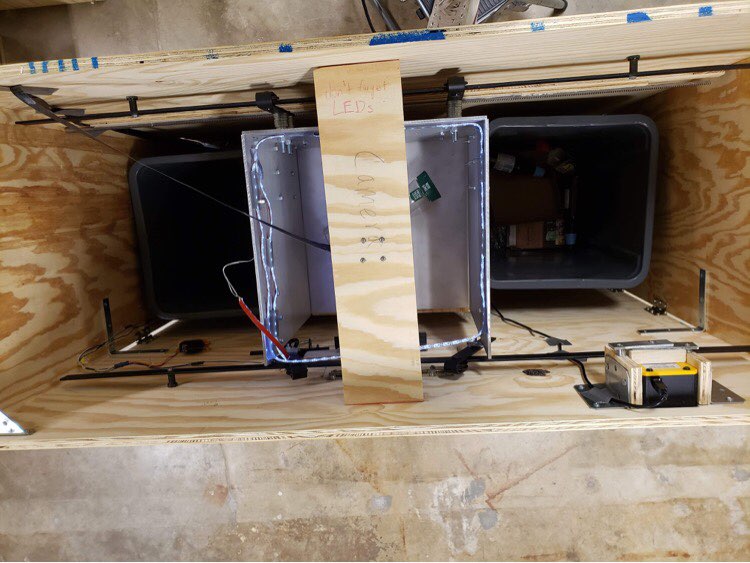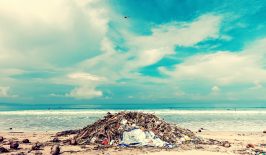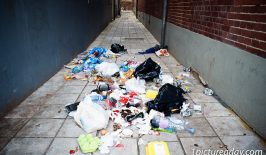Although recycling bins are now common sights across many countries, that does not necessarily mean everything that goes into them is actually recycled. For a whole range of different reasons, non-recyclable materials, or the wrong type, of material, ends up being thrown into recycling bins. These ‘contaminants’ are then added to the recycling stream where they have to later be separated. This costs money, slows down the recycling processes and in some cases can see recycling plants temporarily closed down. Meanwhile, waste that could otherwise be recycled may end up in landfills.
Usually, the separation of recycling occurs at the plants, through methods such as magnets, filters or simply by hand. Although technologies are being introduced to streamline this system, others are being introduced at the first point in the process – the recycling bin.
Students at Rice University have developed a prototype waste bin which can separate out recyclable and non-recyclable material before it is ever collected. Dubbed the Racoon, their design incorporates a camera, algorithms and even an associated app to not only reduce contamination, but also educate consumers at the same time.
As Waste Goes In, Points Come Out
Currently, the system – which is run using a Raspberry Pi and Arduino, works like this: Users lift the front flap and place the waste material onto a tray. This motion indicates to the camera to take an image of the rubbish. The flap is then locked and information about the waste is assessed by the on-board classification algorithm, with the camera identifying the nature of the material in the sorting area by comparing it to objects within its broad catalogue. If the material matches a recyclable object, the Racoon shifts the waste into the recycling bin. If it does not, it is rejected and moved into the general waste bin.
The technology behind the Racoon is not entirely new, with smart waste startup CleanRobotics using a similar method in their Trashbot. However, what makes the Rice University project different, is its secondary goal of providing feedback to the user. Before entering their waste into the Racoon, users can scan a QR code linked to their account. If their waste is indeed recyclable, they will receive points that can be redeemed on the app. If it is not, they are informed and forfeit points.
The team hopes this will help reduce the underlying cause of contamination in the recycling chain – a lack of awareness among consumers. Compared to the Trashbot, their report states:
While the device’s set it and forget it mentality is certainly convenient, it fails to address a major problem of recycling education by giving no feedback or incentive to the user to recycle correctly, and perhaps even making their habits worse. By failing to educate the user, the contamination problem will continue to be a major concern.
The issue of contaminants is indeed a major one for the recycling business. According to Rubicon Technologies, a smart waste software company, around one in four items of recycling are contaminants, while it is estimated that although 75 percent of waste is recyclable, only around 34 percent of it actually is. The remainder finds its way into landfills. Sometimes, waste is also shipped across the world, such as to plants in China or India, where it is sometimes ends up being rejected and shipped back – creating even more unnecessary carbon emissions.
Incentivisation programmes have existed for some time to encourage proper recycling, but these are often at an institutional level. For example, like many universities, Rice University is part of a recycling scheme which financially the institution for proper recycling, and fines them for improper recycling. Systems such as Racoon may help to shift the responsibility further down to the actual individual disposing of their waste.
Currently, the Racoon is one of many examples of innovative technology nominated for the 2021 James Dyson Award. They have competition from other waste-based innovations, however, as this year’s nominees also include an plastic-separating device that works using AI, and a digital plastic scanner than can help you identify exactly the type of plastic a waste item is made of. Click here to explore even more innovative solutions to the world’s waste problem.






